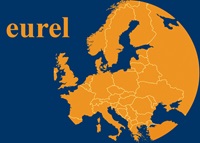The Slovak community in Vojvodina, an autonomous province in northern Serbia, has undergone intensive processes of change since 1989. In addition to the secularization that characterized European societies, including Yugoslavia, throughout the second half of the 20th century, the lives of its members have been affected by the collapse of both Yugoslavia and Czechoslovakia in the early 1990s, as well as by the post-communist transformation. In addition to the break-up of Yugoslavia, accompanied by wars, their lives have been affected by the long-term economic and political crisis in Serbia, as well as by the consequences of globalisation processes and the opening of borders. A significant part of the members of the studied community currently live not only in Serbia but also in Slovakia and other countries. This results in a shift in its character from a territorial community to a transnational one.
The multiple social transformations are also reflected in the changes to the religious life of community members. Slovaks. In the political, media and academic discourse, the image of the Vojvodina Slovaks community, according to which it is categorised as "evangelical", has become established. In the aforementioned public discourses, there is also the opinion that thanks to the Evangelical Church, the members of the community have preserved their specific ethnic identity and language - their "Slovakness". This means that the ethnicity and religion of the community under study are intertwined and mutually condition each other in this understanding.
The paper focuses on the relationship between ethnic and religious identification, tracing the dynamics of their interactions to determine to what extent they are blended or correspond to each other only in certain aspects. However, the identification of Vojvodina Slovaks (or their overwhelming majority) with the evangelical environment plays no role in their migration situation after they arrive in Slovakia. The established image of the Slovak community in Vojvodina exemplifies the stereotyping of ethnic and religious communities as homogeneous. Thus, the relationship between ethnic and religious identification must be analysed as a complex phenomenon, taking into account factors that enter into the relationship, whether from the environment of the community under study or from the external environment (multi-ethnicity of the region, religious diversity, and parallel processes of secularisation and desecularisation).
The paper is based on field research conducted in 2015-2025 among members of the Slovak community in Vojvodina, both on the territory of Vojvodina and among those who moved from there to Slovakia as part of various migration waves.
SANJA ZLATANOVIĆ is а Senior Research Fellow at the Institute of Political Science, Slovak Academy of Sciences, Bratislava. She worked at the Institute of Ethnography, Serbian Academy of Sciences and Arts (1996-2023). Her research interests focus on migration, identity politics, ethnicity and nationalism.
JURAJ MARUŠIAK is a Senior Research Fellow at the Institute of Political Science, Slovak Academy of Sciences, Bratislava. His research is focused on the contemporary politics in Central and Eastern Europe.

 PDF version
PDF version
